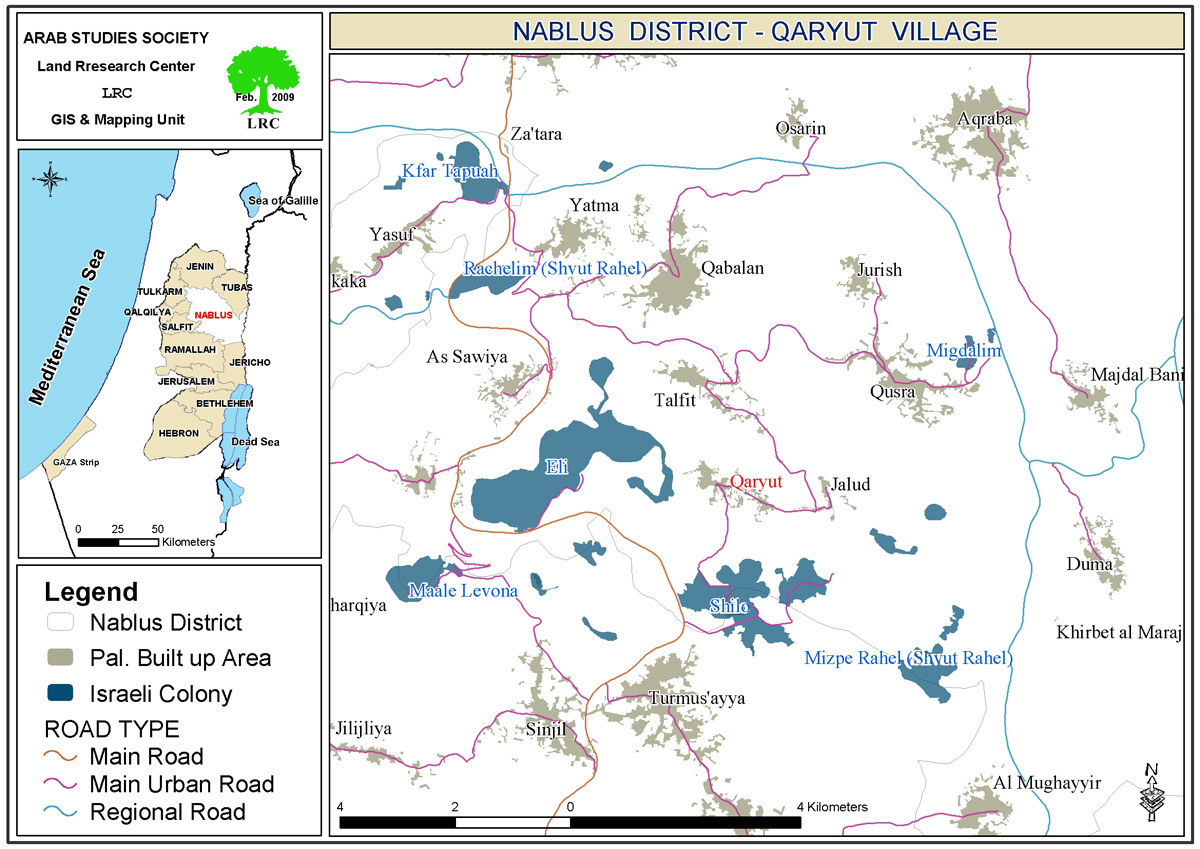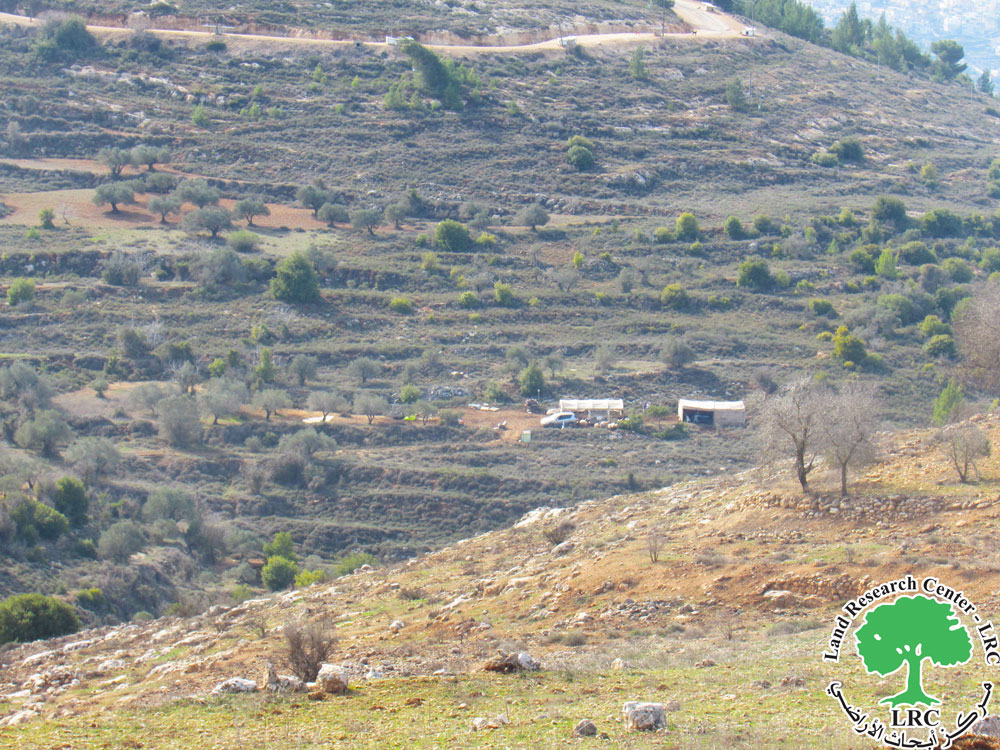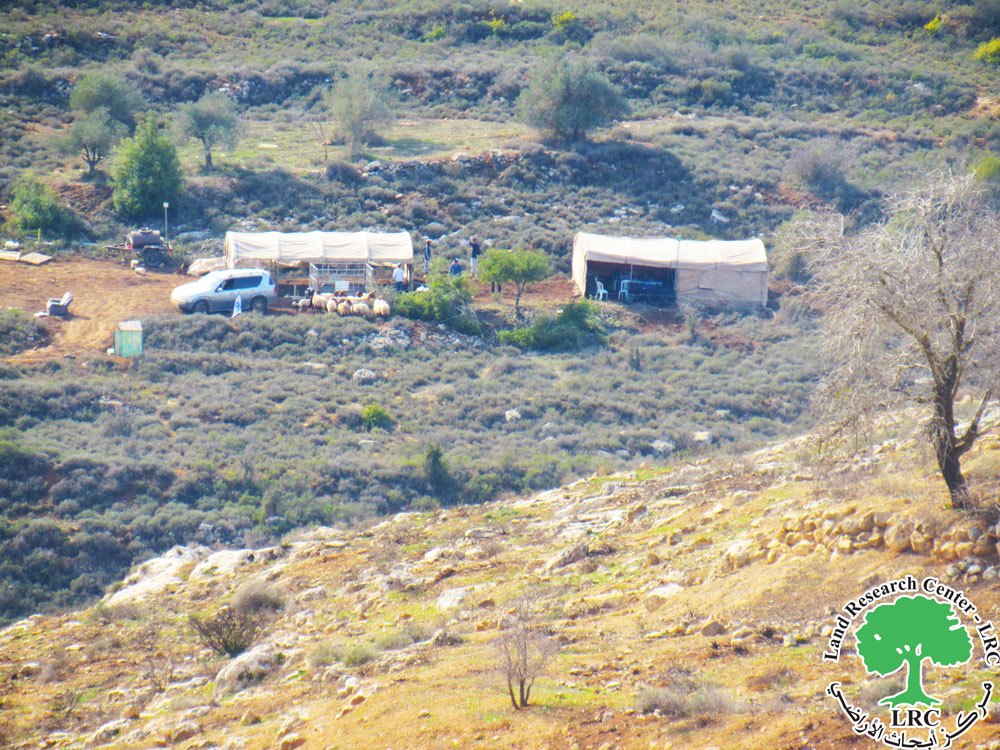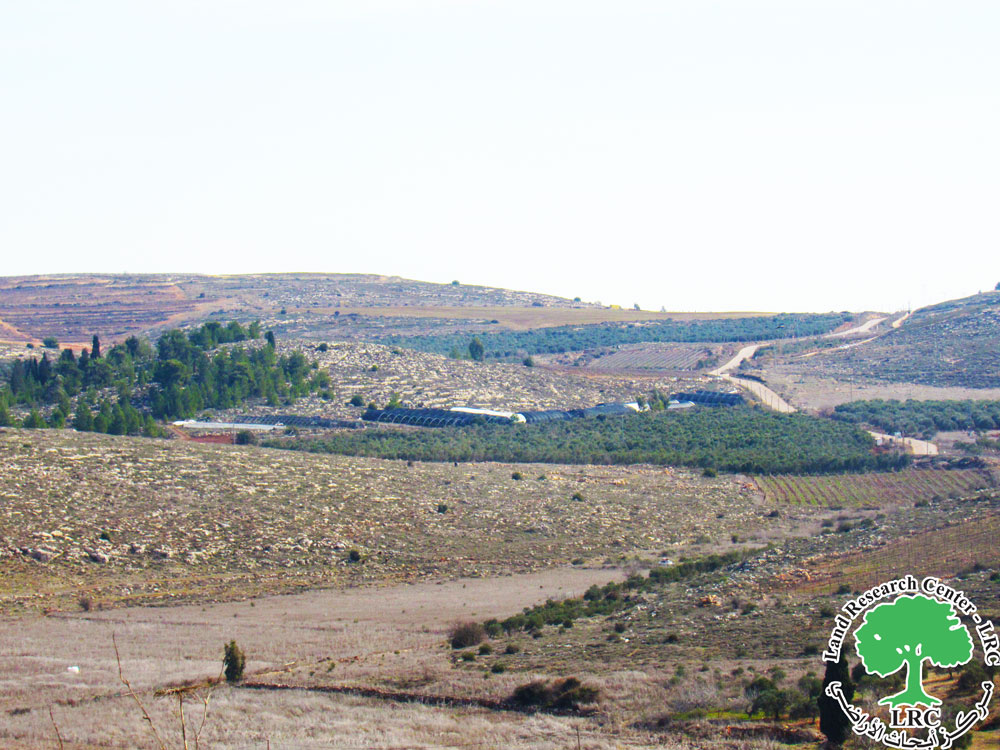Establishment of a New Colonial Grazing Outpost and Theft of 100 Ancient Trees from Qaryut Village Lands, South of Nablus
Violation: Establishment of a new grazing outpost and theft of 100 ancient trees.
Location: Qaryut Village, south of Nablus City.
Date of Violation: 01/01/2025.
Perpetrators: A group of settlers.
Victims: The people of Qaryut Village.
Description:
At the beginning of 2025, a group of settlers, coming from the "Shilo" settlement located on parts of Qaryut's land, established a new colonial grazing outpost in the "Ras Mois" area, south of the village, only 200 meters from the fence surrounding the settlement. The area is planted with olive trees, some of which are ancient and fruitful.
According to field monitoring at the site of the violation, the settlers set up two tents on a two-dunum area and built a sheep pen there. This appears to be part of a plan to seize the entire area.
The land that was seized belongs to the heirs of the late Muhammad Ali Saqour and the farmer Razi Farhan Issa. This piece of land is planted with fruitful olive trees, and since the declaration of war on Gaza on October 7, 2023, the farmers have been deprived of harvesting the olives or even entering the area.
The affected farmer, Razi Farhan Issa (57 years old), who supports a family of four adults, including two females, stated:
"The Ras Mois area used to be one of the most productive sites for olive oil. For the past two years, we have been deprived of harvesting the olives there due to harassment by the settlers. What recently happened is the establishment of a new grazing outpost on the lands of Qaryut, where a settler, along with a group of sheep, set up an outpost there. We own the land and have official documents proving that, yet we have been prevented from even approaching the area."
The danger of establishing this new grazing outpost lies in the fact that there are no less than 2,000 dunams of ancient olive trees surrounding the outpost. It is not unlikely that the settlers will prevent farmers from being present there or even from utilizing the land or harvesting the olives, which is considered a catastrophic and dangerous matter that threatens the entire agricultural sector.
The Theft of 100 Olive Trees:
In the same context, a group of settlers from the "Shefut Rahel" settlement targeted the "Sahl Jaloud" area east of the village of Qaryut on the same day. The settlers invaded the area with agricultural machinery and their own bulldozers, uprooting 100 olive trees that were 40 years old. They then transported them using their vehicles towards the Shefut Rahel settlement with the aim of replanting them there.
The trees that were targeted belong to Mrs. Huria Hamza Said Issa (79 years old), who said: "The Sahl Jaloud area has been targeted by settlers before. They previously tried to seize the land with forged and invalid documents. After several sessions in the occupation courts, the rightful ownership was confirmed in the names of the real landowners. Today, the settlers are taking advantage of the farmers' inability to enter the area to completely Judaize it by cutting down the trees and replanting them inside the settlement. These trees have been under our care for many years, and we have cultivated this land."
Introduction to the Village of Qaryut:
Qaryut is located southeast of the city of Nablus, 20 km away. Its land area is 8,471 dunams, of which 312 dunams are built-up area. The village has a population of 2,321 people.
The Israeli occupation has confiscated 1,332 dunams of its land for the following settlements:
- Shilo Settlement: It confiscated about 779 dunams from Qaryut's land, with a built-up area of 1,347 dunams. It was established in 1978.
- Aili Settlement: It confiscated about 553 dunams from Qaryut's land, with a built-up area of 3,360 dunams. It was established in 1984.
- مشروع: حماية الحقوق البيئية الفلسطينية في مناطق "ج" SPERAC IV - FCDO
Disclaimer: The views and opinions expressed in this report are those of Land Research Center and do not necessarily reflect the views or positions of the project donor; the Norwegian Refugee Council.
إخلاء المسؤولية: الآراء ووجهات النظر الواردة في هذا التقرير هي آراء ووجهات نظر مركز أبحاث الأراضي ولا تعكس بالضرورة وجهات نظر أو مواقف الجهة المانحة للمشروع؛ المجلس النرويجي. للاجئين




